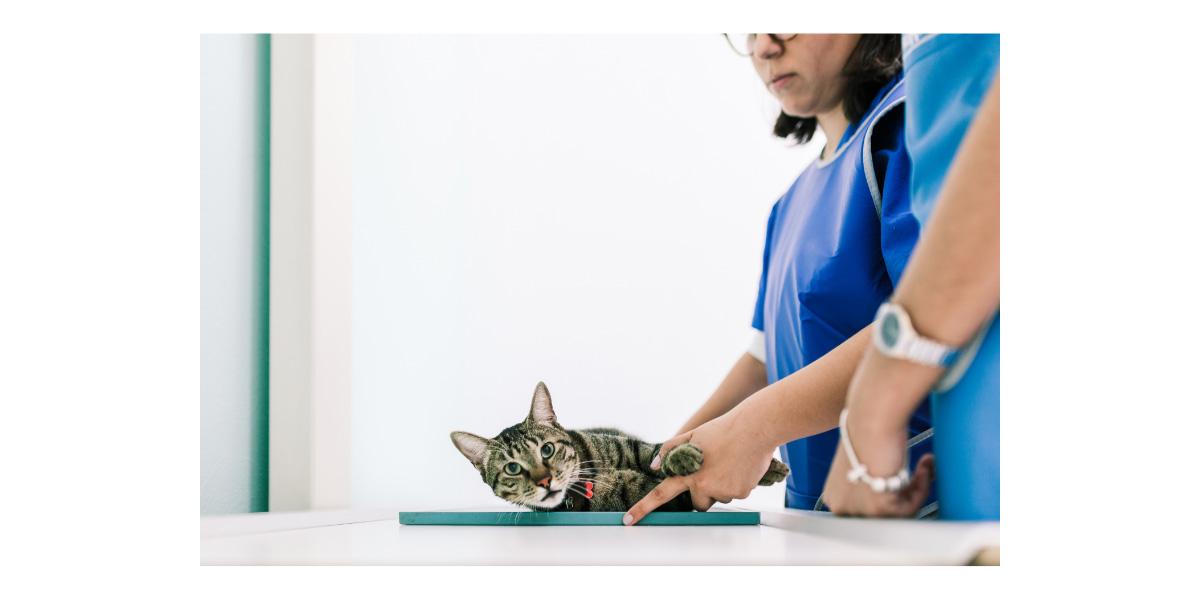Why Are So Many Cats Getting Hyperthyroidism?
Doctor of Veterinary Medicine

While efforts are made to answer all questions as quickly as possible, if an immediate answer is required or if your pet is in need of urgent or emergency care, contact your pet's veterinarian immediately.
Doctor of Veterinary Medicine

You will receive an answer from Dr. Lindsay and our vet/tech team as soon as possible, usually the same day.
All answers are provided for informational or educational purposes only, and are intended to be a supplement to, and not a substitute for, the expertise and professional judgment of your pet's veterinarian.
It may be necessary to consult your pet's veterinarian regarding the applicability of any opinions or recommendations with respect to your pet's symptoms or medical condition.
CloseDoctor of Veterinary Medicine

An error has occurred, please reload the page and try again.
CloseWhile efforts are made to answer all questions as quickly as possible, if an immediate answer is required or if your pet is in need of urgent or emergency care, contact your pet's veterinarian immediately.
There is no answer related to your question

Diseases of the thyroid are on the rise not only in people, but cats too. In honor of National Thyroid Month, learn about hyperthyroidism, a chronic health condition that affects 1 in every 10 senior cats, and what you can do to protect your cat’s thyroid health.
What Is Hyperthyroidism in Cats?
The thyroid is a two-lobed gland located at the front of the neck. In healthy cats, the thyroid produces hormones T3 and T4 that control metabolism.
In cats with hyperthyroidism, the thyroid is enlarged and produces excess amounts of hormones. Thyrotoxicosis, or an excess of thyroid hormones in the bloodstream, causes an accelerated metabolism.
A cat with hyperthyroidism will usually have an increased appetite, and may lose weight despite eating more. They often experience increased thirst and urination. Some cats also seem to have increased energy, and may become aggressive or irritable.
Hyperthyroidism also causes the heart to beat faster, with stronger contractions. Many cats with hyperthyroidism will also have high blood pressure, which can damage the heart, eyes, brain, and kidneys if left untreated.
What Causes Feline Hyperthyroidism?
Most of the time, enlargement of the thyroid gland is caused by a benign tumor called an adenoma. In less than 5% of cases, this tumor is cancerous.
Veterinary researchers are unsure why so many cats are developing hyperthyroidism. Today, the condition is the most prevalent endocrine issue in cats, affecting around 10% of those over 10 years old. Yet just forty years ago, this condition was unheard of.
One possible cause of this epidemic is iodine content in cat food. The trace mineral iodine is essential for thyroid function. It’s not produced in the body, so your cat must get it from their diet. Cats that get too much, too little, or fluctuating amounts of iodine from their diet are at increased risk of thyroid issues.
Iodine levels are higher in cat foods made with fish than in those made with beef or chicken. Wet foods are higher in iodine than dry foods and in some studies have been linked to an increase risk of hyperthyroidism.
That said, wet food has many health benefits for cats over dry food - it’s higher in moisture, helping to fight dehydration and urinary tract diseases, and it’s generally higher in protein and lower in carbohydrates, helping to prevent obesity. Fish-flavored cat foods, too, while previously linked to hyperthyroid, offer numerous health benefits for cats. Pet parents should weigh the pros and cons with their veterinarian to find the best food for their cat at every life stage.
Another potential risk factor is hormone-disruptors in a cat’s environment. Polybrominated diphenyl ethers (PBDEs) are chemicals added to many household products, especially furniture and carpeting, as a flame retardant. PBDEs became widespread in the 1970s, around the time veterinarians started seeing hyperthyroidism in cats. Since cats spend most of the time indoors, and spend much of the day cleaning their fur, it’s likely that they’re susceptible to consuming chemicals that can affect their thyroid function.
Protect Your Cat’s Thyroid Health
While studies have shown some links to canned cat food and seafood protein sources, this does not mean you need to immediately change your cat’s diet. Dietary iodine is just one potential factor, and it’s still unclear whether cats are also developing hyperthyroidism due to too little iodine in their diet.
Environmental factors like household contaminants, too, are difficult to pin down, and even harder to avoid. Hormone disrupting chemicals in furniture, blankets, electronics, and even food containers, food, and drinking water can have effects on your cat’s thyroid health.
The silver lining is that hyperthyroidism is a highly treatable condition. Most cats recover with treatment options that range from surgery to prescription thyroid medication to dietary changes, with radioactive iodine treatment being one of the most safe and effective options.
The key to protecting your pet’s health is to see your veterinarian for wellness checkups - not just when your cat isn’t feeling well. Annual well visits for young cats and twice-yearly visits for senior cats can catch signs of disease before symptoms start, giving your cat the best chances of a good prognosis.
And when you do notice symptoms like appetite changes, mood swings, or unexplained changes in behavior, don’t delay, see your veterinarian right away.



























